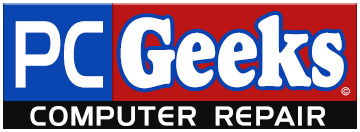Repair, Upgrade, or Replace?
It happens to every computer after a while. Something just isn’t right. It seems to be growing slower. It gets too many crashes. Is it time for a new machine?
A lot of times, the problem is something that’s easy and inexpensive to fix. Before you buy a new computer, you should think about these questions:
- Do I want to spend that much money and disrupt my schedule right now?
- Will it fix my problem?
- Is there a less expensive way to fix it?

Alternatives to replacement
Some problems are easy to repair. A loose connector or an erratic power supply can account for unreliable computer behavior. If the computer sometimes doesn’t see devices that you plug in, or if it spontaneously reboots, that may be the reason. The fix costs much less than a new computer.
Software issues may be what’s slowing your computer down. If your browser has too many plugins, that could drag down its performance. Some out-of-date process might be running in the background, desperately trying to connect to a site that no longer exists.
Malicious software could be hiding on your machine, dragging down its performance as well as stealing your information. Scanning for malware or reinstalling your operating system may uncover and fix problems.
A hardware upgrade could provide the performance boost you need, for less money than a new machine. Adding memory can dramatically improve performance, especially if you switch between applications a lot. If you’ve nearly filled up your disk, a larger disk drive can speed up your machine.
Consider all the costs
When you move to a new machine, you have to migrate everything that you want to keep. Sometimes software won’t run on the newer hardware. You may need to re-enter a license key. If you can’t find it, you might need to buy the application again to use it. You may need to purchase an upgrade to let it run on the new machine.
The new computer may have a newer operating system version. That’s nice in a lot of ways, but it increases the chances of compatibility problems. At best, you’ll have to spend some time learning the ways it does things differently. It’s something we all do periodically, but the question is whether you want to do it right now.
Talk to us. We can help you to make an informed decision on whether repair, upgrading, or replacement is the best way to fix your computer issues.
